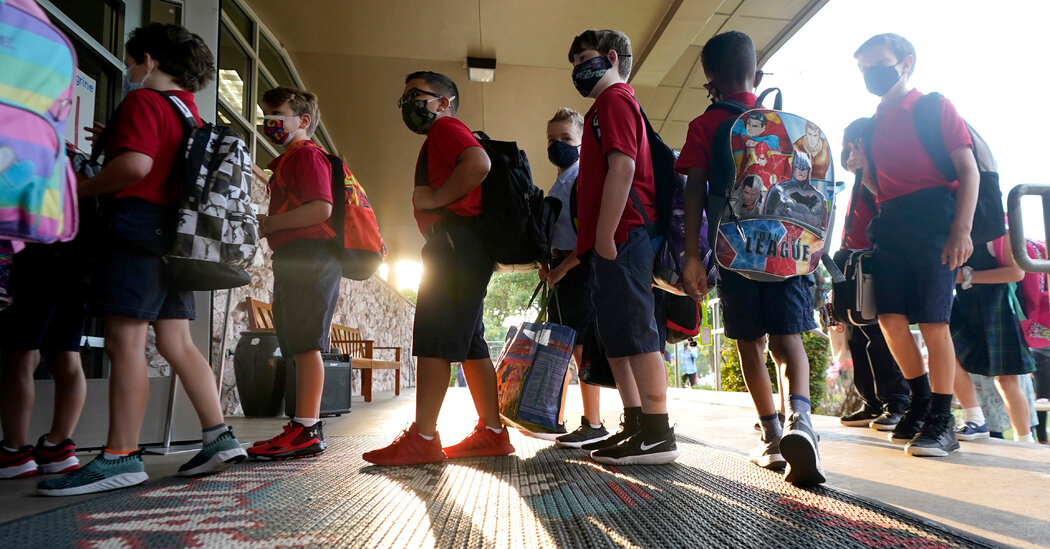
A key federal advisory committee is set to consider on Tuesday whether to recommend that a pediatric dose of the Pfizer-BioNTech coronavirus vaccine be offered to 5- to 11-year-olds, setting in motion a string of decisions that could lead to children getting shots as early as the end of next week.
Federal officials hope that the pediatric dose can help close a major gap in the nation’s vaccine campaign that has worried parents, educators and public health leaders. If the Food and Drug Administration grants authorization, about 28 million children will become eligible for shots. Only the youngest, those under 5, would remain uncovered.
The F.D.A.’s advisory committee of experts will hear from officials at the Centers for Disease Control and Prevention, who will discuss how Covid-19 has affected children and data on whether coronavirus vaccines are safe for them. Representatives from Pfizer will discuss the company’s clinical trial, involving more than 4,400 children aged 5 to 11.
The committee’s recommendations on whether to authorize vaccines are not binding, but the F.D.A. typically follows them in the days after the vote. The meeting is scheduled to begin at 8:30 a.m. Eastern time and will be streamed on YouTube.
It is unclear how many parents would quickly vaccinate their elementary schoolers if given the chance. Polling has showed that roughly a third of these parents are eager to do so right away, while a third prefer to wait. Since federal regulators cleared a full dose of the Pfizer-BioNTech vaccine for children 12 to 15 in May, 46 percent of that age group has been fully vaccinated, compared with about 69 percent of those 18 and older.
The dose for younger children would be one-third of the strength given to people 12 and older, with two shots given three weeks apart. Pfizer and BioNTech are asking the F.D.A. to authorize distribution on an emergency basis.
The process may go more smoothly than when the vaccine manufacturers sought authorization of booster shots for adults — an issue that preoccupied and divided the agency’s regulators and its outside experts for much of the past two months.
All recipients of Johnson & Johnson’s one-dose vaccine are eligible for a booster at least two months afterward. Recipients of the Pfizer-BioNTech and Moderna vaccines are eligible for boosters six months after their second injection if they fit the following broad categories: older adults, people with certain medical conditions and those in risky jobs or living situations.
Pfizer has provided the F.D.A. with safety data on two study cohorts of children ages 5 to 11, both of roughly equal size. The first group was followed for about two months, the second for about two and a half weeks. Pfizer cited efficacy data only for the first group of about 2,200 children, saying its vaccine had an efficacy rate of 91 percent against symptomatic Covid-19.
On Friday, F.D.A. regulators said in an analysis of Pfizer’s pediatric trial data that the benefits of staving off Covid-19 with the vaccine generally outweighed the risks of the most worrisome side effects for young children.
Regulators modeled scenarios that involved varying levels of spread of the virus, and assumed the rate of two vaccine-associated heart conditions would be the same in the younger children vaccinated with a one-third dose as in adolescents aged 12 to 15 who received a full dose.
Federal health officials have said that cases of those heart conditions — myocarditis, or inflammation of the heart muscle, and pericarditis, inflammation of the lining around the heart — after the second dose of a vaccine tend to be mild and resolve quickly.



